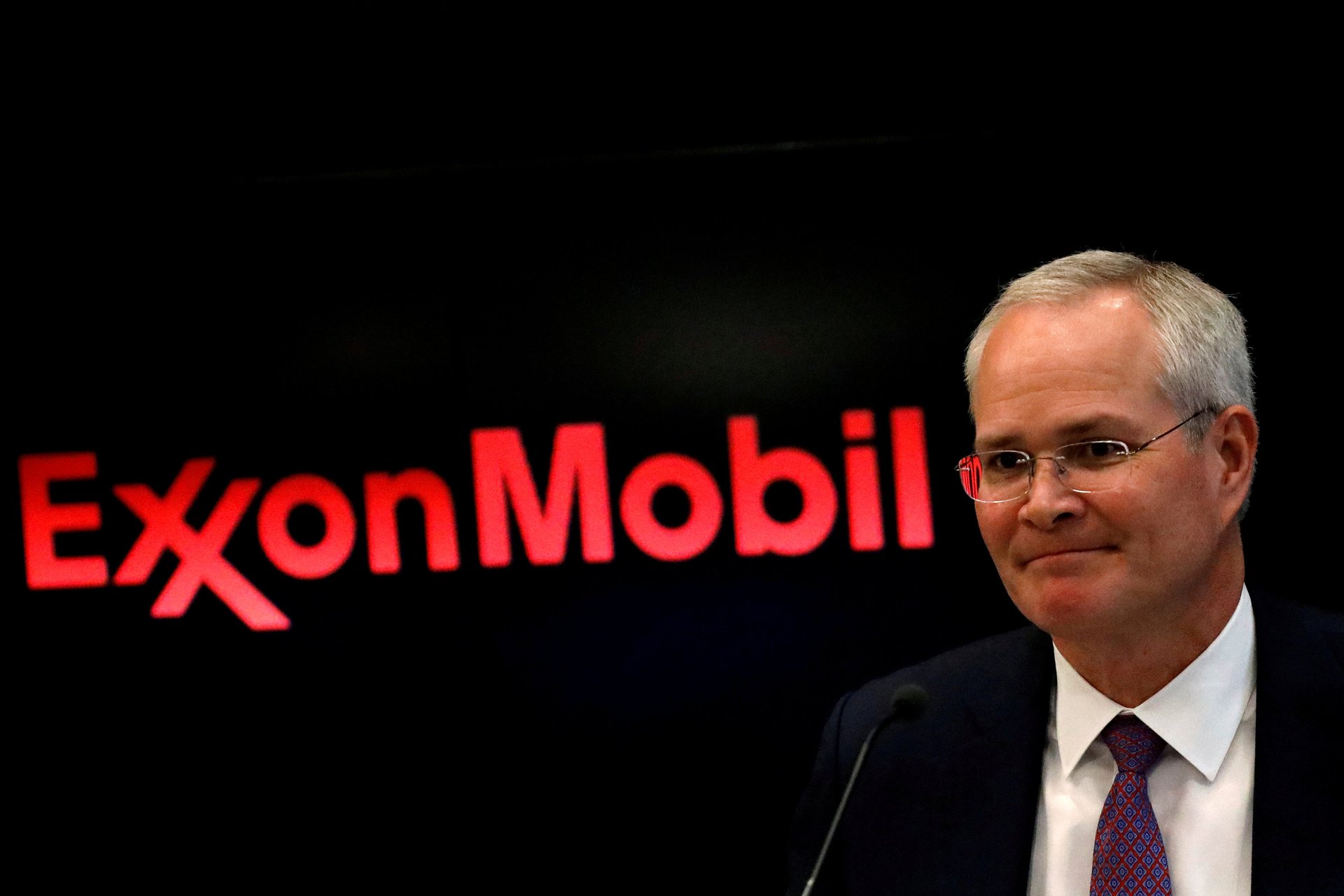ExxonMobil is preparing to fend off multiple shareholder resolutions related to climate change
The oil company encouraged shareholders to vote against a decarbonization proposal

ExxonMobil Corp. will face the heat on climate change at the oil giant’s annual shareholder meetings—scheduled for May 31—with activist investors proposing several carbon emissions resolutions.
Suggested Reading
Notably, ExxonMobil shareholders will vote on a proposal, submitted by Dutch activist investor group Follow This, that would bring the company’s emissions reduction target in line with the aims of the Paris Agreement, including the goal to limit global warming to 1.5 degree Celsius above pre-industrial levels (scientists have warned that global temperatures are already 1 degree Celsius warmer compared to pre-industrial levels).
Related Content
ExxonMobil’s board, via a proxy statement, urged shareholders to reject the proposal, saying it agrees with the sentiment that the company should be a leader in the energy transition but is concerned the stated targets could “have significant unintended consequences for society.”
Shareholders will also vote on a resolution filed by Andrew Behar, CEO of As You Sow, a non-profit that advocates for corporate social responsibility. The resolution requests that ExxonMobil take a more holistic approach to reporting emissions, including the addition of asset sales in its overall emissions reporting.
“The economic risks associated with climate change exist in the real world rather than on company balance sheets,” Behar writes in his proposal’s support materials. “Transferring emissions from one company to another may reduce balance sheet emissions but does not mitigate company or stakeholder exposure to climate risk or contribute to the goal of limiting global temperature rise to 1.5°C.”
Although ExxonMobil agreed with Behar’s assertion that including divested assets isn’t a “constructive way to reduce global emissions,” it still recommended that shareholders vote against the proposal. Its argument: The resolution was too narrow in scope and would make the company’s reporting inconsistent with most of the oil and gas industry.
Oil company profits, by the digits:
$219 billion: Profits generated by Big Oil in 2022, double the previous year.
$394 million: Amount paid to the chief executives of 28 major oil and gas companies in 2021, including ExxonMobil CEO Darren Woods, who made $23 million.
8: Consecutive years before 2023 that have been the warmest on record.
9.2%: Share of people who live on less than $2.15 a day.
1 million: Estimated number of animal species on the brink of extinction.
Shell faces similar pressure to expedite its climate plan
Fellow oil titan Shell faced a similar predicament last week at a tumultuous general meeting, when shareholders voted to support the its longstanding climate strategy resolution, despite protests by climate activists that included storming the stage during an address by company chair Andrew Mackenzie.
Also 80% of voting shareholders rejected a plan proposed by activist investors that would have set a more ambitious target for cutting carbon emissions.
Currently, Shell’s resolution names 2050 as a target for net zero emissions, rejecting a push to expedite the transition to clean energy. Activist investors, including the group Follow This, want that number closer to 2030.
However, just three days after the meeting, a Dutch court ruled that Shell’s plan to decarbonize didn’t go far enough and ordered the company to reduce its CO2 emissions by 45% by 2030, roughly in line with demands of Follow This. Shell said it would appeal the ruling.
Related stories:
Correction: An earlier version of this article indicated the goal of the Paris Agreement was to prevent a global temperature rise of 1.5% above pre-industrial levels, instead of 1.5 degrees Celsius.